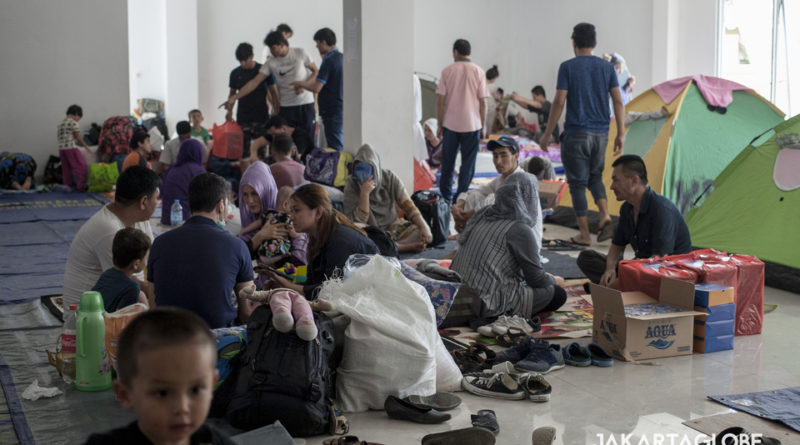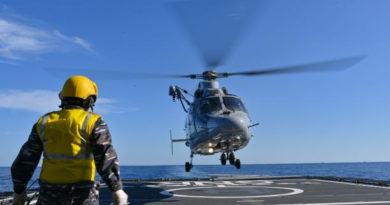Refugees Risk Catching Covid-19
OPINION
BY :ERFAN DANA

A Call for Help: Refugees Risk Catching Covid-19 in Overcrowded Shelters
.
.
Last Friday, a refugee living in a shelter run by the International Organization of Migration, or IMO, in Makassar, tested positive for Covid-19. Since then, as many as four other refugees are also suspected of having the virus.
Though the refugees are now in self-isolation for the next 14 days, they’ve already had close physical contact with other refugees in the same overpopulated IOM shelter, which means a cluster of Covid-19 outbreak in the shelter cannot be ruled out.
The refugees are desperately asking for more Covid-19 testing to identify how many of them are infected and stop them from spreading the virus to other refugees who have underlying illnesses in the same shelter.
Refugees and asylum seekers living in shelters run by IOM have limited access to basic sanitation supplies and are at grave risk of an outbreak of coronavirus.
Over 8,200 refugees, including families with small children, are living in overcrowded, unsanitary conditions in IOM shelters in Indonesia.
In the city of Batam in the country’s northwest, I am one of over 220 men living in one building without any health care supplies to protect ourselves from the virus.
In each room, eight people live and share one bathroom, toilet, kitchen, stairs, yard and entrance gate.
The cramped environment makes self-isolation and social distancing impossible and puts everyone at risk of being infected with the coronavirus.
We don’t have access to sanitation supplies, such as masks, soaps or disinfectants. We’ve asked both the United Nations High Commissioner for Refugees (UNHCR) and IOM to provide us with healthcare supplies.
The IOM and UNHCR have ignored and refused our request, providing only hand soap to a small number of refugees two months ago, while most have received nothing at all.
The lack of facilities makes quarantine impossible. Every day refugees are forced to go out to buy food and other daily necessities.
They don’t have masks, protective clothes, gloves or disinfectants to protect them.
.
The IOM only leaves a bottle of hand soap at the entrance gates of some shelters. It quickly runs out and then the refugees are left in the shelters with absolutely no sanitation equipment.
“What’s most terrifying is the impact on our mental and psychological health. We think there is no hope to survive, we are already forgotten,” Asadullah Amiri, a Hazara refugee from Afghanistan in Makassar, said.
His shelter keeps almost 2,000 refugees.
At the shops, masks and soaps are scarce and prices are hugely inflated, making them completely unaffordable for those of us living in poverty.
Before the Covid-19 outbreak, we were buying one kilogram of onion for Rp 11,000 (74 US cents). Now, one kilo is Rp 20,000.
Refugees have no work rights in Indonesia. Many of us rely on very limited financial assistance from IOM. Each refugee receives $90 a month. It can’t even cover the cost of our food as the price of everything has become more expensive than ever before.
“We suffer from various kinds of physical and mental disorders because we have no access to health facilities and live in very stressful conditions,” Khalil, another refugee from Afghanistan in Makassar, said.
“The IOM and UNHCR stopped visiting us in the shelters a month ago. They even refused to visit very sick refugees who need urgent medical attention, leaving us in a state of disappointment and distress,” Khalil said.
Most refugees now living in IOM accommodation spent their first several years in Indonesia in detention centers.
I myself was detained in a Pontianak detention center for two and a half years before I was released into community housing in Batam.
The head of the UNHCR, Ann Maymann, recently said the UN agency had been working with different partners and local governments to distribute sanitation kits such as face masks and disinfectants.
A small number of refugee families have received a small amount of cash in Jakarta and Bogor, while refugees living in overpopulated accommodation receive no assistance.

We have been informed over and over again by the UNHCR and IOM that the best defense against this rapidly spreading virus is to wash our hands with soap and water, many times each day.
We urgently need soap because many refugees couldn’t afford to buy their own. If we have more soaps, we will be a lot less at risk of contracting the virus.
The number of confirmed Covid-19 cases in Indonesia continues to spike. Today, May 17, 17,514 people have tested positive and the country has one of the highest fatality rates from Covid-19 in the world.
The government of Indonesia isn’t providing free tests. It costs more than Rp 500,000 rupiahs to get tested for coronavirus, which refugees cannot afford.
In Indonesia, over 13,623 refugees from different war-torn countries have been living in a complete state of disappointment and solitude for nearly a decade now.
Many refugees had tried to get to Australia by boat but they were turned back to Indonesia by the Australian government and left in desperate living conditions, with no legal rights.
SUAKA, an NGO assisting refugees, recently wrote: “The ASR [asylum seeker and refugee] community in Indonesia is one of the most vulnerable, if not most, to coronavirus.”
.

Refugees in IOM shelters are scared, and both mentally and physically unprepared to deal with the virus because they are denied the health care supplies they need.
We have no empty rooms available to isolate a sick person.
We have extremely limited access to healthcare facilities.
We fear if one person were to become infected in a shelter, all of us would get the virus./ Jakarta Globe
Erfan Dana is a 23-year-old Hazara refugee from Afganistan. He has been living in a refugee shelter in Batam, Riau Islands, for five years.


SIGN UP TO RECEIVE OUR EMAIL
The most important news of the day about the ASEAN Countries and the world in one email: [email protected]










